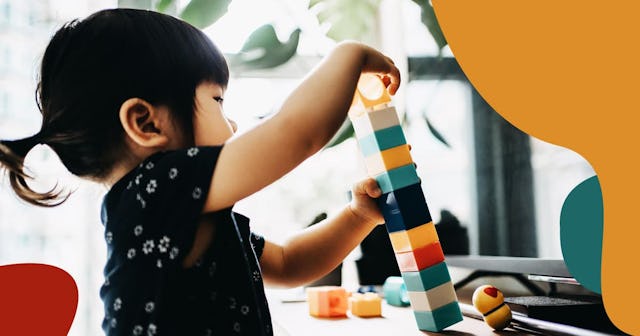Clutter Gives Me Major Anxiety––Here's How I Finally Fixed That Problem In Our House

Did you ever stop and look around your home and suddenly feel overcome with a feeling that you are drowning in stuff?
This first happened to me about ten years ago. My first child was born New Year’s Day, and the holiday season after he turned one left us with mountains of gifts, drawers overflowing with clothes, and closets crammed with toys. The piles of wrapping paper, packaging, money spent and the look on my son’s face craving more stuff left me with a powerless feeling that something had to change.
I wanted my children to live in a home where success is measured by how we live, not by what we have. My hope was that they would place value on their relationships, not their possessions. And I longed for our home to be a space free of physical and mental clutter, where everyone has the freedom needed to be happy, creative and kind.
This felt like an ambitious goal, but I was desperate to take control of all my stuff, before my stuff took control of me. Here are three rules I follow to keep my family steered in this direction:
1. When we need something, a store is the last place we look.
Have you browsed lately on Facebook Marketplace, or perhaps the latest Garage Sale app? People are selling like-new objects for a fraction of the price. When we need (or want) something, we always look for a used item first. This keeps us out of stores where we might be tempted to buy more than we need. My son’s first bike was a like-new Spider-Man bike that we eventually resold for what we paid for it. It felt like we simply borrowed the item until it no longer served us, and then passed it on to someone who needed it. We didn’t hurt the environment, or our wallets, more than we had to. I did a little research and learned that buying and selling online is also great for the local economy because the money being exchanged is more likely to be re-injected into local businesses and restaurants! New things don’t have to come from a store.
2. We always choose people over things.
KT images/Getty
When my oldest was four, he launched a wooden puzzle piece in the air that hit our brand-new plasma TV, shattering the screen into a million pieces. He was expressing his unhappiness about his brother’s movie selection (seriously, who doesn’t love Toy Story 3?). My over-the-top reaction lodged a permanent bad memory in his brain that he still talks about today.
Regretful and disappointed with myself, I decided to never let my family feel like stuff was more important than them ever again. I was lucky to get a second chance with my son just recently. He called me in tears from school after breaking his (very new and very expensive) retainer on the soccer field. Are you okay? That’s all that matters to me. I’m coming to get you. Accidents happen. People are important, not things. We can replace stuff; we can’t replace relationships.
3. If we don’t use it or love it, we find someone who does.
As I joined online mom communities, like new moms often do, I saw how other families in my neighborhood could put to better use a lot of the stuff I was storing in my house. I decided that I would not treat my home like a storage unit any longer. If something has not been used in a year, then it gets rehomed. I received a note from a family telling me they were finally able to go on a camping trip because of the equipment we gave them – equipment that lived in our garage for ten years “just in case.” When an expectant mother came to pick up the rocking chair that I had used to rock all three of my babies, it brought me pure delight to know that this special chair would continue to give joy rather than collect dust.
I now question every item in my house. Do I love it? Do I need it? If the answer is no, I make it a mission of mine to find someone who does. Less stuff means less time cleaning and organizing and more time doing what we love.
I understand that my desire to live with less is a personal choice; a choice that my children might not want to emulate. I do, however, hope that living this way inspires them to have a healthy relationship with their stuff. And when they look back at their childhood, most of their memories will be happy ones that comes from giving, sharing and loving people – not things!
This article was originally published on